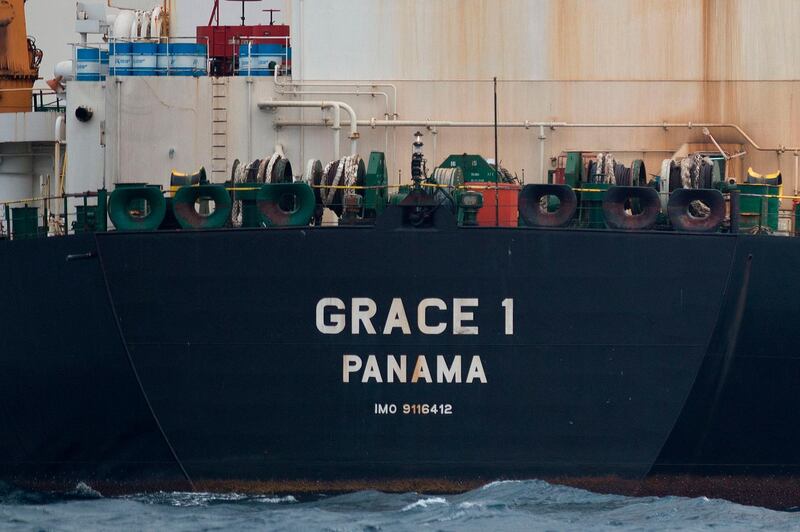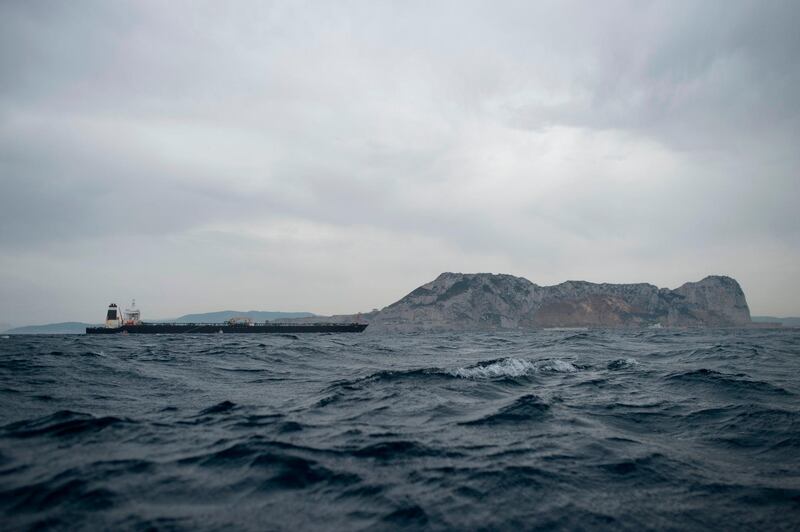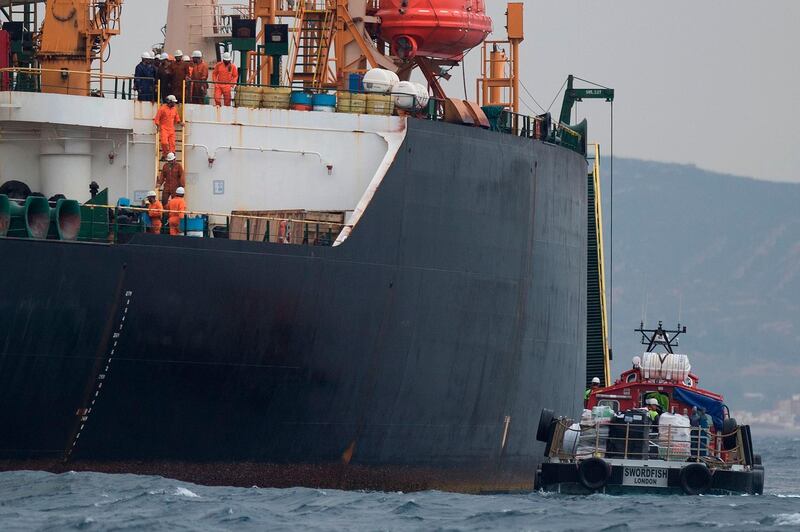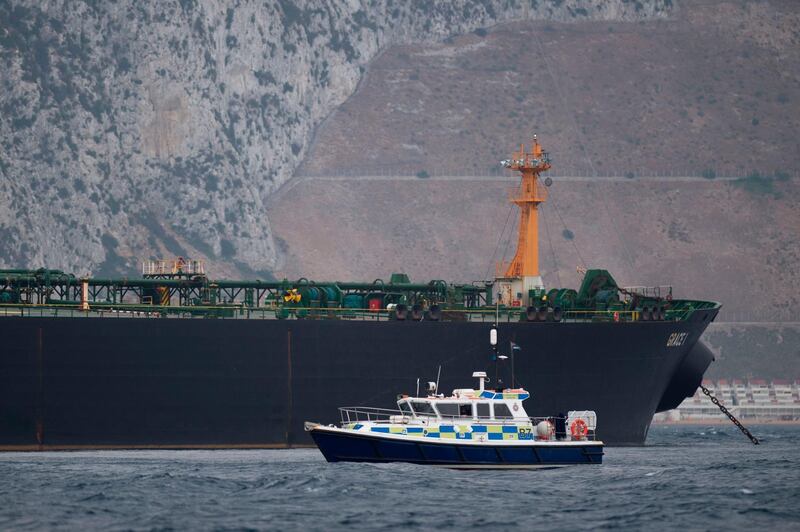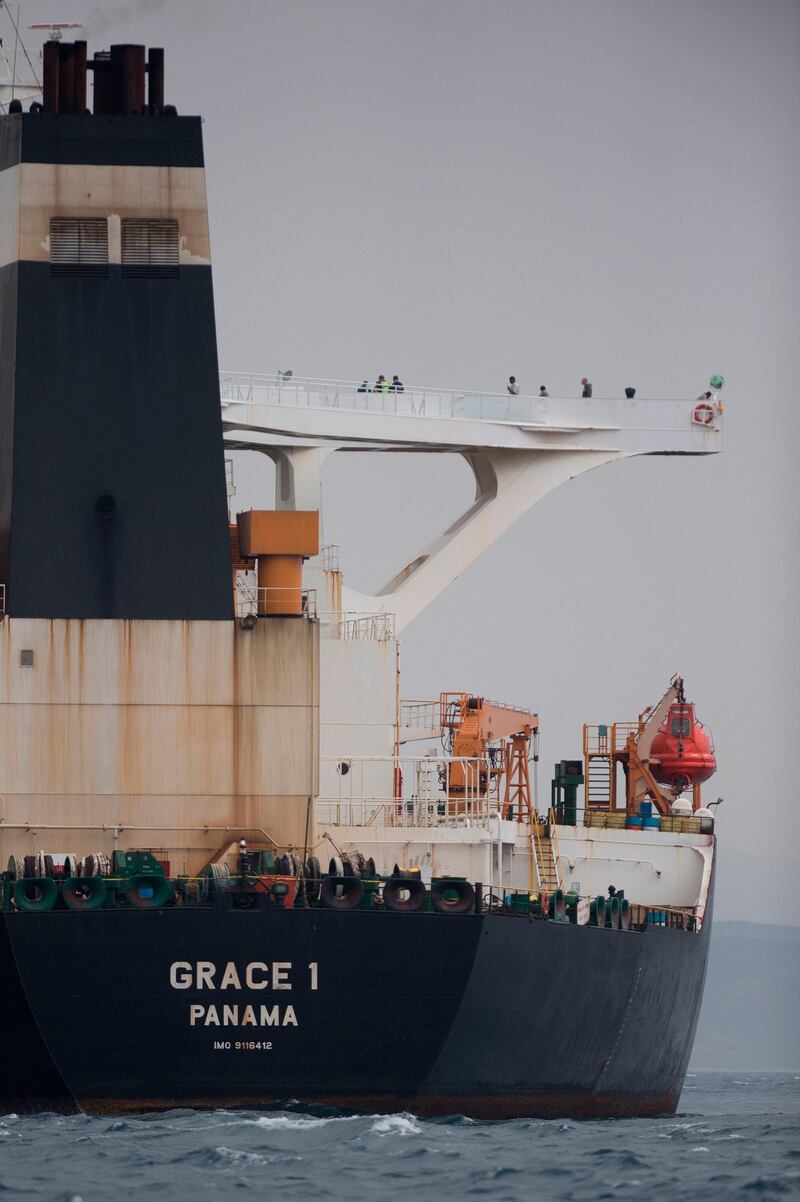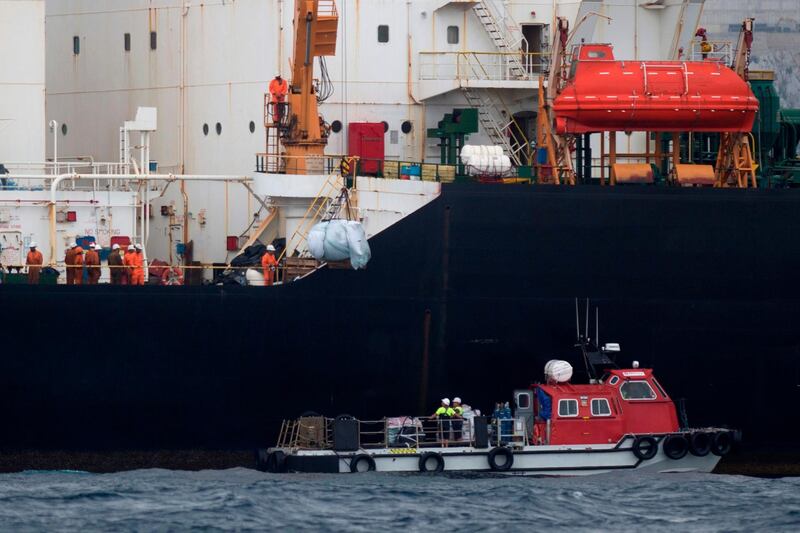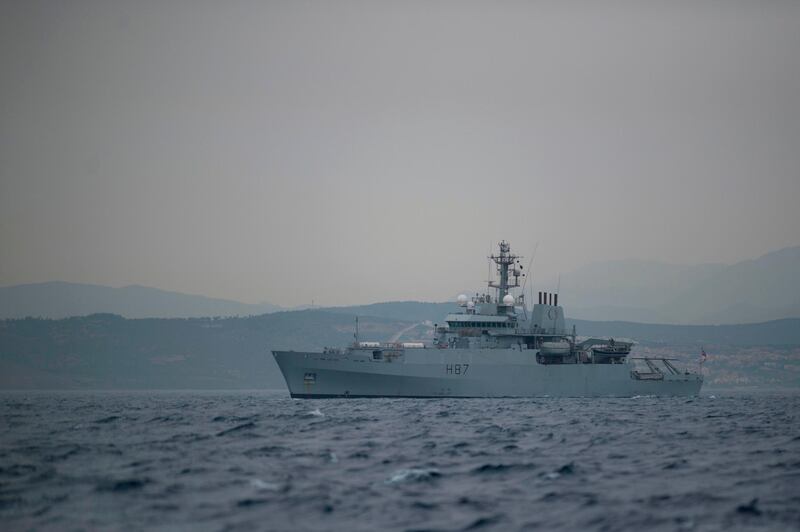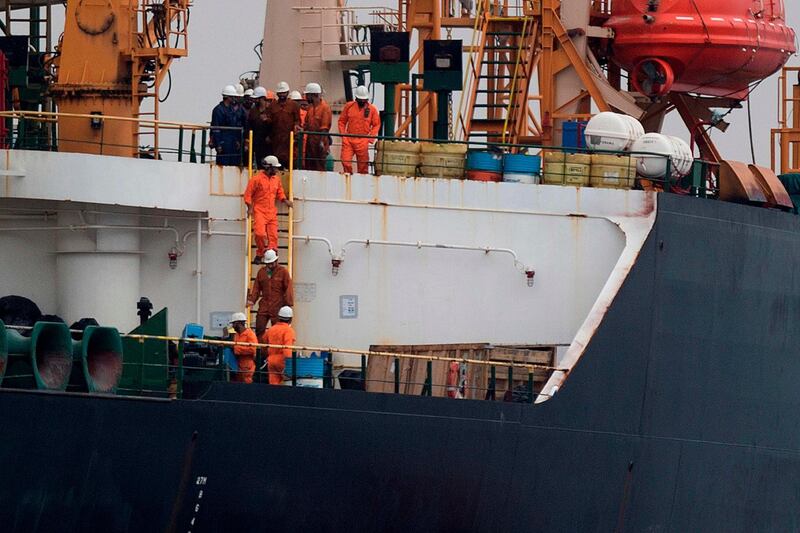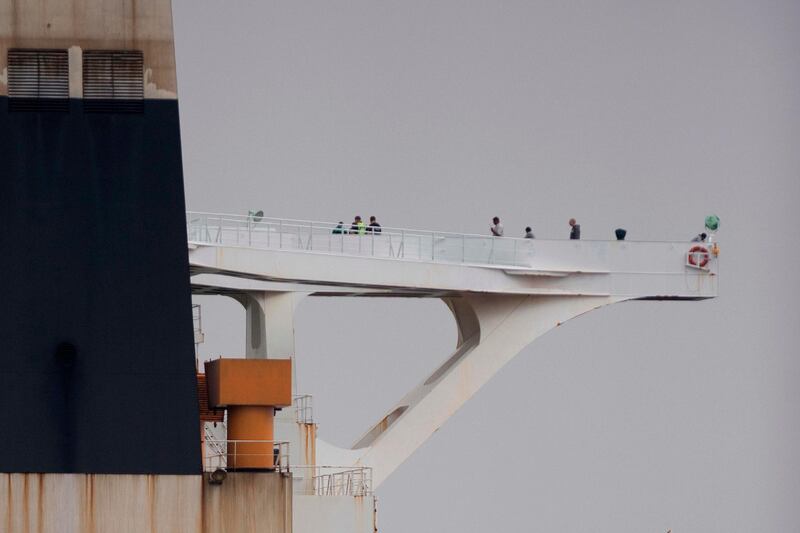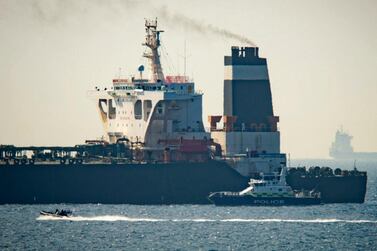A British naval frigate warned off three Iranian vessels after they attempted to stop and divert an oil tanker from its passage through the Strait of Hormuz.
The incident happened hours after Iran vowed there would be “consequences” in response to British special forces seizing its supertanker off the coast of Gibraltar last week.
The armed vessels approached the British Heritage tanker on Wednesday, ordering it to change course and stop in Iranian territorial waters.
The British Royal Navy frigate HMS Montrose was escorting the tanker, which is owned by BP, and was forced to aim is weapons at the Iranian Islamic Revolutionary Guard Corps (IRGC) boats to order them to retreat.
It is the latest incident to heighten tensions in the Gulf and led to oil prices on Thursday reaching a six week high.
Despite it appearing to be a tit-for-tat incident, the IRGC denied responsibility claiming in a statement: "There has been no confrontation in the last 24 hours with any foreign vessels, including British ones."
But Britain’s Ministry of Defence said its warship was forced to intervene after three Iranian ships attempted to “impede the passage” of the British tanker and has urged Iran to “de-escalate” the situation.
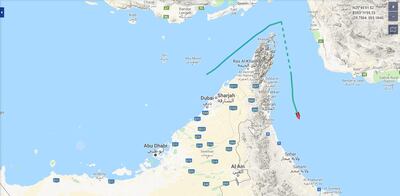
"Contrary to international law, three Iranian vessels attempted to impede the passage of a commercial vessel, British Heritage, through the Strait of Hormuz," a spokesperson said.
"HMS Montrose was forced to position herself between the Iranian vessels and British Heritage and issue verbal warnings to the Iranian vessels, which then turned away.
"We are concerned by this action and continue to urge the Iranian authorities to de-escalate the situation in the region."
US officials say their aircraft carrier filmed the incident and described it as “harassment”.
"The Royal Navy HMS Montrose, which was also there, pointed its guns at the boats and warned them over radio, at which point they dispersed," another official added.
On Thursday, Iran's Foreign Minister Mohammad Javad Zarif dismissed the British allegations as "worthless" saying the claims "are being made to create tension”.
But just hours before the incident Iranian President Hassan Rouhani had issued a stark warning to Britain saying it would face "consequences" over the seizure of the Iranian oil tanker Grace 1 in Gibraltar last week.
"I point out to the British that you initiated insecurity [on the seas] and you shall grasp the consequences of it later on," he said.
“Now you are so hopeless that, when one of your tankers wants to move in the region, you have to bring your frigates (to escort it) because you are scared. Then why do you commit such acts (seizure)? You should instead allow navigation to be safe.”
Rear-Admiral Ali Fadavi, deputy commander in chief of the Revolutionary Guards, reiterated the comments on Thursday saying that Britain will “strongly regret” the seizure of the tanker in Gibraltar.
“If the enemy had made the smallest assessment they wouldn’t have done this act,” he said.
Adding that the seizure of the tanker was “stupidity... a trait the American President has in spades and the British to some extent.”
British defence minister Penny Mordaunt praised the Royal Navy's actions.
"I would like to thank the Royal Navy for their professionalism, which upheld international law and supported freedom of navigation through a shipping channel that is vital to global trade," she tweeted on Thursday.
Defence Secretary @PennyMordaunt comments on HMS Montrose in the Strait of Hormuz. pic.twitter.com/3q4NQ7Z19d
— Ministry of Defence 🇬🇧 (@DefenceHQ) July 11, 2019
A spokesman for BP, which operates the British Heritage tanker, said: "Our top priority is the safety and security of our crews and vessels. While we are not commenting on these events, we thank the Royal Navy for their support."
It is understood the ship was not carrying cargo.
It was revealed on Thursday that Britain has recommended all British-flagged ships go to a heightened state of security in the Strait of Hormuz.
The UK's Department for Transport said: “The Department for Transport, as competent authority, regularly provides Security Advice to UK and Red Ensign Group Shipping on how they should operate in areas of high risk.”
Last week the Grace 1 was seized after authorities suspected it was heading for the Baniyas Refinery in Tartous, Syria, which is owned by Baniyas Oil Refinery Company and subject to EU sanctions.
Iran had first issued threats of retaliation on Tuesday, when its armed forces chief of staff Major General Mohammad Bagheri said: “Capture of the Iranian oil tanker based on fabricated excuses will not be unanswered and when necessary Tehran will give an appropriate answer.”
Petromatrix oil analyst Olivier Jakob said the Gulf is in a process of “intimidation and psychological warfare”.
"What happened was partially expected. We pointed out last week that Iran was likely to do something of the sort," he said.
"They might have created a little bit of disturbance, but nothing came out of it. For now we are in the process of intimidation and psychological warfare.... To have a strong price reaction you need something to really happen."
On Wednesday, the US asked allies to send ships to the region to step up naval patrols to protect shipping.
“We’re engaging now with a number of countries to see if we can put together a coalition that would ensure freedom of navigation both in the Straits of Hormuz and the Bab Al Mandeb,” said General Joseph Dunford, chairman of the US Joint Chiefs of Staff.
“Probably over the next couple of weeks we’ll identify which nations have the political will to support that initiative and then we’ll work directly with the militaries to identify the specific capabilities that will support that.”
Security expert Michael Horowitz says the action may have made it easier for the US to gain support for its plans to form a naval protection force in the Gulf.
“It may seem counter-intuitive for Iran to try to seize a ship they likely knew was escorted by a frigate, but by doing so they seek to show they are not deterred, and thus force the UK to escort any British tanker passing through the Gulf,” he said.
However, he has warned that by doing so Iran may now have benefitted the US’ tanker protection initiative.
“Incidentally, Iran may have made it easier for the US to enrol countries into the naval protection force it is trying to build in the Gulf,” he added.
The incident came at a time of heightened tensions over Iran's unravelling nuclear agreement with world powers.
Iran recently began breaching uranium enrichment limits in response to the Trump administration's withdrawal from the agreement last year and its imposition of sweeping sanctions.
US President Donald Trump has warned Iran that sanctions would soon be "increased substantially".
In May and June several oil tankers were attacked, which the US blamed on Iran.
Last month, Iran shot down a drone near the Strait of Homuz which led Mr Trump to threaten air strikes.
